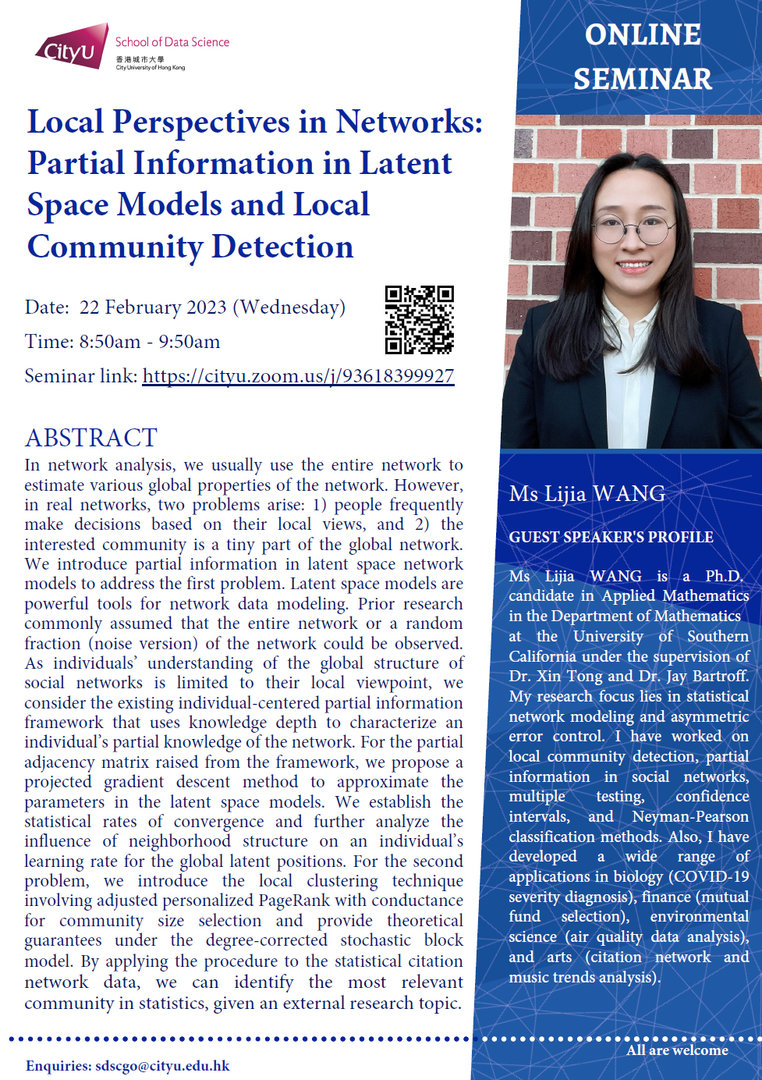
In network analysis, we usually use the entire network to estimate various global properties of the network. However, in real networks, two problems arise: 1) people frequently make decisions based on their local views, and 2) the interested community is a tiny part of the global network. We introduce partial information in latent space network models to address the first problem. Latent space models are powerful tools for network data modeling. Prior research commonly assumed that the entire network or a random fraction (noise version) of the network could be observed. As individuals’ understanding of the global structure of social networks is limited to their local viewpoint, we consider the existing individual-centered partial information framework that uses knowledge depth to characterize an individual’s partial knowledge of the network. For the partial adjacency matrix raised from the framework, we propose a projected gradient descent method to approximate the parameters in the latent space models. We establish the statistical rates of convergence and further analyze the influence of neighborhood structure on an individual’s learning rate for the global latent positions. For the second problem, we introduce the local clustering technique involving adjusted personalized PageRank with conductance for community size selection and provide theoretical guarantees under the degree-corrected stochastic block model. By applying the procedure to the statistical citation network data, we can identify the most relevant community in statistics, given an external research topic.
Speaker: Ms Lijia WANG
Date: 22 February 2023 (Wednesday)
Time: 8:50am – 09:50am
Poster: Click here
Latest Seminar
Biography
Ms Lijia WANG is a Ph.D. candidate in Applied Mathematics in the Department of Mathematics at the University of Southern California under the supervision of Dr. Xin Tong and Dr. Jay Bartroff. My research focus lies in statistical network modeling and asymmetric error control. I have worked on local community detection, partial information in social networks, multiple testing, confidence intervals, and Neyman-Pearson classification methods. Also, I have developed a wide range of applications in biology (COVID-19 severity diagnosis), finance (mutual fund selection), environmental science (air quality data analysis), and arts (citation network and music trends analysis).